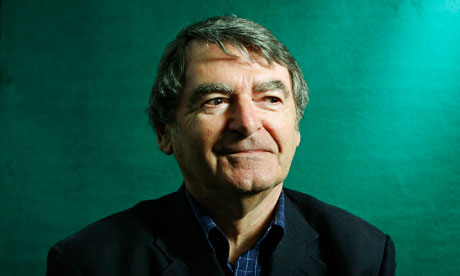
David Lodge's three solidly crafted comic novels of academic life, compiled here in one volume, are all set in the fictional University of Rummidge, a rain-lashed, new-built institution in the Midlands.
In Changing Places, written in 1975 but set in the tail end of the 1960s – in the years of student protest – Rummidge's comparatively undistinguished Philip Swallow embarks on an academic exchange with the flamboyant Morris Zapp of Euphoric State University in the US. After the initial culture shock has abated the two men find themselves becoming increasingly comfortable in their new lives, to the point where even their wives become part of the swap. Changing Places is the most formally experimental of the three books – parts of it are written as play text, one section is entirely composed of newspaper clippings – but all three share a postmodern playfulness, a generous dusting of literary reference.
The second novel, Small World, is set against the backdrop of the international academic conference circuit, and is full of echoes of medieval literature; young Irishman Persse McGarrigle travels the world in search of the love of his life while a large cast of international academics, including Swallow and Zapp, joust for a near-mythical professorship.
The trilogy concludes with Nice Work, a reworking of the Victorian industrial novel, written in the mid 1980s but set in 1979. Feminist academic Robyn Penrose is reluctantly put forward for a "shadowing" scheme in which she is obliged to follow factory boss Victor Wilcox about his day-to-day business, in an attempt to open up a dialogue between Rummidge and its industrial surroundings. As in Elizabeth Gaskell's North and South, initial animosity between the two gives way to grudging respect before spilling over into something more. Nice Work is also, despite the specificity of its setting, the most resonant and in some ways prescient of three books in the way it depicts shifts in the academic environment and in British society as a whole.

